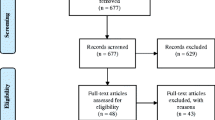Abstract
Diabetes mellitus is a complex chronic condition requiring daily self-management to prevent/delay the onset of diabetes-related complications. The emphasis on control for diabetes self-management can lead to feelings of self-blame and failure when targets are not reached. Self-compassion may offer an alternative way of relating to the self when such feelings arise, and in turn, positively influence diabetes health outcomes. However, little is known about how self-compassion relates to behavioural, clinical and emotional outcomes in adults with diabetes. The aim of the current study was therefore to determine the associations between self-compassion and diabetes-related health behaviours and clinical outcomes, and emotional health outcomes. Cross-sectional data from adults (N = 1907) aged 18–75 years with type 1 or type 2 diabetes, who participated in the second Diabetes MILES—Australia (MILES-2) study, were analysed. Behavioural outcomes were healthy eating and physical activity (SDSCA subscales); clinical outcome was self-reported haemoglobin A1c (HbA1c; an important measure of average blood glucose in diabetes management); emotional outcomes were depressive symptoms (PHQ-8), anxiety symptoms (GAD-7) and diabetes distress (PAID). Self-compassion was measured using the Self-Compassion Scale Short-Form (SCS-SF). Self-compassion was significantly lower among those with severe diabetes distress or moderate-to-severe symptoms of depression and anxiety, as compared to those with no/mild symptoms. Further, hierarchical linear regression analyses, split by diabetes type, revealed that self-compassion was significantly associated with all specified outcomes, with the strongest associations observed among the emotional outcomes (β range, − 0.47 to − 0.55; all p < 0.01). The findings indicate self-compassion is meaningfully associated with more optimal behavioural, clinical and, especially, emotional outcomes in adults with diabetes.
Similar content being viewed by others
References
American Diabetes Association. (2018). Glycemic targets: standards of medical care in diabetes. Diabetes Care, 41(1), S55–S64.
Australian Diabetes Society (2018). ADS Position Statement on A New Blood Glucose Management Algorithm for Type 2 Diabetes. Retrieved 1 August 2018, from https://diabetessociety.com.au/position-statements.asp.
Australian Institute of Health and Welfare (2012). Insulin pump use in Australia. Diabetes series no. 18. Canberra: AIHW.
Broom, D., & Whittaker, A. (2004). Controlling diabetes, controlling diabetics: moral language in the management of diabetes type 2. Social Science & Medicine, 58(11), 2371–2382.
Browne, J. B., Ventura, A., Mosely, K., & Speight, J. (2013). I call it the blame and shame disease': a qualitative study about perceptions of social stigma surrounding type 2 diabetes. BMJ Open, 3, e003384. https://doi.org/10.1136/bmjopen-2013-003384.
Browne, J. B., Nefs, G., Pouwer, F., & Speight, J. (2015). Suicidal ideation or non-suicidal self-harm? A mismatch between the DSM-IV criterion and the PHQ-9 item nine. Diabetes Research and Clinical Practice, 108(1), e5–e6.
Browne, J. B., Ventura, A. D., Mosely, K., & Speight, J. (2016). Meauring the stigma surrounding type 2 diabetes: development and validation of the Type 2 Diabetes Stigma Assessment Scale (DSAS-2). Diabetes Care. https://doi.org/10.2337/dc16-0117.
Browne, J. B., Holmes-Truscott, E., Ventura, A., Hendrieckx, C., Pouwer, F., & Speight, J. (2017a). Cohort profiles of the cross-sectional and prospective participant groups in the second Diabetes MILES — Australia (MILES-2) study. BMJ Open, 7(2). https://doi.org/10.1136/bmjopen-2016-012926.
Browne, J. B., Ventura, A., Mosely, K., & Speight, J. (2017b). Measuring type 1 diabetes stigma: development and validation of the Type 1 Diabetes Stigma Assessment Scale (DSAS-1). Diabetic Medicine, 34(12), 1773–1782.
Cohen, J. L. (1988). Statistical power analysis for behavioural sciences (2nd ed.). United States of America: Lawrence Erlbaum Associates.
Ferrari, M., Dal Cin, M., & Steele, M. (2017). Educational and psychological aspects of self-compassion is associated with optimum self-care behaviour, medical outcomes and psychological well-being in a cross-sectional sample of adults with diabetes. Diabetic Medicine. https://doi.org/10.1111/dme.13451.
Fisher, L., Skaff, M. M., Mullan, J. T., Arean, P., Glasgow, R., & Masharani, U. (2008). A longitudinal study of affective and anxiety disorders, depressive affect and diabetes distress in adults with type 2 diabetes. Diabetic Medicine, 25, 1096–1101.
Friis, A. M., Consedine, N. S., & Johnson, M. H. (2015a). Does kindness matter? Diabetes, depression, and self-compassion: a selective review and research agenda. Spectrum, 28(4), 252–257.
Friis, A. M., Johnson, M. H., Cutfield, R. G., & Consedine, N. S. (2015b). Does kindness matter? Self-compassion buffers the negative impact of diabetes-distress on HbA1c. Diabetic Medicine. https://doi.org/10.1111/dme.12774.
Friis, A. M., Johnson, M. H., Cutfield, R. G., & Consedine, N. S. (2016). Kindness matters: a randomized controlled trial of a mindful self-compassion intervention improves depression, distress and HbA1c among patients with diabetes. Diabetes Care. https://doi.org/10.2337/dc16-0416.
Germer, C. K., & Neff, K. D. (2013). Self-compassion in clinical practice. Journal of Clinical Psychology, 69(8), 856–867.
Gillanders, D. T., Sinclair, A. K., MacLean, M., & Jardine, K. (2015). Illness cognitions, cognitive fusion, avoidance and self-compassion as predictors of distress and quality of life in a heterogeneous sample of adults, after cancer. Journal of Contextual Behavioral Science, 4, 300–311.
Gonzalez, J. S., Fisher, L., & Polonsky, W. H. (2011). Depression in diabetes: have we been missing something important? Diabetes Care, 34(1), 236–239.
Homan, K. J., & Sirois, F. M. (2017). Self-compassion and physical health: exploring the roles of perceived stress and health-promoting behaviors. Health Psychology Open, 4(2). https://doi.org/10.1177/2055102917729542.
International Diabetes Federation (2017). IDF Diabetes Atlas 8th Edition. Retrieved November, 2017, from https://www.idf.org/e-library/epidemiology-research/diabetes-atlas.html
Kelly, A. C., Miller, K. E., & Stephen, E. (2016). The benefits of being self-compassionate on days when interactions with body-focused others are frequent. Body Image, 19, 195–203.
Koekkoek, P. S., Biessels, G. J., Kooistra, M., Janssen, J., Kappelle, L. J., Rutten, G. E., & Cog-ID study group. (2015). Undiagnosed cognitive impairment, health status and depressive symptoms in type 2 diabetes. Journal of Diabetes and its Complications, 29(8), 1217–1222.
Kroenke, K., Spitzer, R. L., & Williams, J. B. (2001). The PHQ-9: validity of a brief depression severity measure. Journal of General Internal Medicine, 16, 606–613.
Kroenke, K., Strine, T. W., Spitzer, R. L., Williams, J. B. W., Berry, J. T., & Mokdad, A. H. (2009). The PHQ-8 as a measure of current depression in the general population. Journal of Affective Disorders, 114, 163–173.
Leary, M. R., Tate, E. B., Adams, C. E., Allen, A. B., & Hancock, J. (2007). Self-compassion and reactions to unpleasant self-relevant events: the implications of treating one-self kindly. Journal of Personality and Social Psychology, 92, 887–904.
Lowe, B., Decker, O., Muller, S., Brahler, E., Schellberg, D., Herzog, W., & Herzberg, P. Y. (2008). Validation and standardization of the Generalized Anxiety Disorder screener (GAD-7) in the general population. Medical Care, 46(3), 266–274.
MacBeth, A., & Gumley, A. (2012). Exploring compassion: a meta-analysis of the association between self-compassion and psychopathology. Clinical Psychology Review, 32(6), 545–552.
McCarthy, M. M., Whittemore, R., Gholson, G., & Grey, M. (2017). Self-management of physical activity in adults with type 1 diabetes. Applied Nursing Research, 35, 18–23.
National Diabetes Services Scheme (2017). Diabetes map. Retrieved November 2017, from http://www.diabetesmap.com.au.
National Diabetes Services Scheme (2018). Insulin therapy: Statistical snapshot at 30 June 2018. Retrieved June 2018, from https://static.diabetesaustralia.com.au/s/fileassets/diabetes-australia/231f00b5-f73f-4a38-9171-87565b4434dc.pdf.
Natonal Diabetes Register (2018). Registry. Retrieved 18 June 2018, from https://www.addn.org.au/research/.
Neff, K. D. (2003). Self-compassion: an alternative conceptualization of a healthy attitude toward oneself. Self and Identity, 2(2), 85–101.
Neff, K. D., & Dahm, K. A. (Eds.). (2015). Self-compassion: what it is, what it does, and how it relates to mindfulness. New York: Springer.
Neff, K. D., & Germer, C. K. (2013). A pilot study and randomized controlled trial of the mindful self-compassion program. Journal of Clinical Psychology, 69(1), 28–44. https://doi.org/10.1002/jclp.21923.
Neff, K. D., & Vonk, R. (2009). Self-compassion versus global self-esteem: two different ways of relating to oneself. Journal of Personality, 77(1), 23–50. https://doi.org/10.1111/j.1467-6494.2008.00537.x.
Polonsky, W. H., Anderson, B. J., Lohrer, P. A., Welch, G., Jacobson, A. M., Aponte, J. E., & Schwartz, C. E. (1995). Assessment of diabetes-related distress. Diabetes Care, 18(6), 754–760.
Porges, S. W. (2007). The plyvagal perspective. Biological Psychology, 74, 116–143.
Raes, F., Pommier, E., Neff, K. D., & Van Gucht, D. (2011). Construction and factorial validation of a short form of the Self-Compassion Scale. Clinical Psychology & Psychotherapy, 18(3), 250–255. https://doi.org/10.1002/cpp.702.
Rockliff, H., Gilbert, P., McEwan, K., Lightman, S., & Glover, D. (2008). A pilot exploration of heart rate variability and salivary cortisol responses to compassion-focused imagery. Clinical Neuropsychiatry, 5(3), 132–139.
Schmitt, A., Reimer, A., Hermanns, N., Huber, J., Ehrmann, D., Schall, S., & Kulzer, B. (2016). Assessing diabetes self-management with the Diabetes Self-Management Questionnaire (DSMQ) can help analyse behavioural problems related to reduced glycaemic control. PLoS One. https://doi.org/10.1371/journal.pone.0150774.
Sirois, F. M., Kitner, R., & Hirsch, J. K. (2014). Self-compassion, affect, and health-promoting behaviors. Health Psychology. https://doi.org/10.1037/hea0000158.
Snoek, F. J., Pouwer, F., Welch, G., & Polonsky, W. H. (2000). Diabetes-related emotional distress in Dutch and U.S diabetic patients. Diabetes Care, 23, 1305–1309.
Speight, J., Browne, J. L., Holmes-Truscott, E., Hendrieckx, C., Pouwer, F., & on behalf of the Diabetes MILES - Australia reference group. (2011). Diabetes MILES - Australia 2011 survey report. Melbourne: Diabetes Australia.
Spitzer, R. L., Kroenke, K., Williams, J. B., & Lowe, B. (2006). A brief measure for assessing generalized anxiety disorder: the GAD-7. Archives of Internal Medicine, 166(10), 1092–1097.
Tak, S. R., Hendrieckx, C., Nefs, G., Nyklicek, I., Speight, J., & Pouwer, F. (2015). The association between types of eating behaviour and dispositional mindfulness in adults with diabetes. Results from Diabetes MILES: The Netherlands. Appetite, 87, 288–295.
Tanenbaum, M. L., Adams, R. N., Gonzalez, J. S., Hanes, S. J., & Hood, K. K. (2017). Adapting and validating a measure of diabetes-specific self-compassion. Journal of Diabetes and its Complications. https://doi.org/10.1016/j.jdiacomp.2017.10.009.
Toobert, D. J., Hampson, S. E., & Glasgow, R. E. (2000). The summary of diabetes self-care activities measure: results from 7 studies and a revised scale. Diabetes Care, 23, 943–950.
van Son, J., Nyklicek, I., Nefs, G., Speight, J., Pop, V. J., & Pouwer, F. (2015). The association between mindfulness and emotional distress in adults with diabetes: could mindfulness serve as a buffer? Results from Diabetes MILES: The Netherlands. Journal of Behavioral Medicine, 38(2), 251–260.
World Health Organization. (2011). Diabetes Fact Sheet No. 312. Retrieved November 2017, from www.who.int/mediacentre/factsheets/fs312/en/.
Yi-Frazier, J. P., Yaptangco, M., Semana, S., Busciaino, E., Thompson, V., Cochrane, K., . . . Rosenberg, A. R. (2015). The association of personal resilience with stress, coping, and diabetes outcomes in adolescents with type 1 diabetes: Variable-and person-focused approaches. Journal of Health Psychology, 20(9), 1196–1206.
Young-Hyman, D., de Groot, M., Hill-Briggs, F., Gonzalez, J. S., Hood, K., & Peyrot, M. (2016). Psychosocial care for people with diabetes: a position statement of the American Diabetes Association. Diabetes Care, 39, 2126–2140.
Acknowledgements
We thank all study participants who took part in this research.
Funding
The key researchers on this study were supported by core funding provided to the Australian Centre for Behavioural Research in Diabetes by Diabetes Victoria and Deakin University. An unrestricted educational grant from Sanofi ANZ supported recruitment activities and the development of the study website. Sanofi ANZ was not involved in the study design, data collection or data analysis and had no input on the preparation of this manuscript.
Author information
Authors and Affiliations
Contributions
AV, GN and JLB conceptualised the study. AV analysed the data and wrote the paper. GN and JLB assisted with data analysis, collaborated on the design of the paper and final writing and editing of the manuscript. FP, AMF and JS collaborated on the design of the paper and provided feedback and contributed to subsequent revisions of the manuscript. All authors approved the final version of this manuscript.
Corresponding author
Ethics declarations
The study was conducted in compliance with the guidelines of Deakin University Human Research Ethics Committee.
Conflict of Interest
The authors declare that they have no conflict of interest.
Informed Consent
Informed consent was obtained.
Additional information
Publisher’s Note
Springer Nature remains neutral with regard to jurisdictional claims in published maps and institutional affiliations.
Rights and permissions
About this article
Cite this article
Ventura, A.D., Nefs, G., Browne, J.L. et al. Is Self-Compassion Related to Behavioural, Clinical and Emotional Outcomes in Adults with Diabetes? Results from the Second Diabetes MILES—Australia (MILES-2) Study. Mindfulness 10, 1222–1231 (2019). https://doi.org/10.1007/s12671-018-1067-0
Published:
Issue Date:
DOI: https://doi.org/10.1007/s12671-018-1067-0




